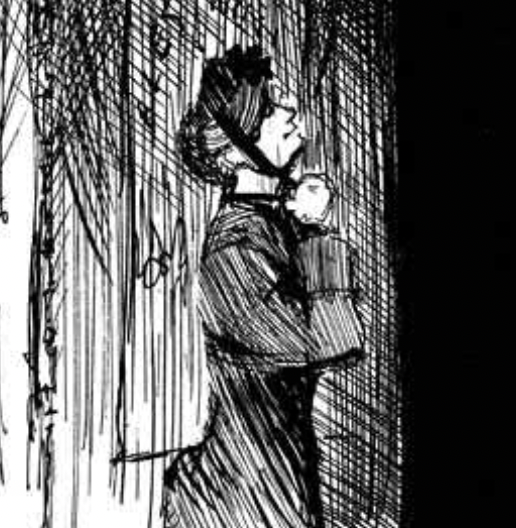*Forgive any formatting as I’m on mobile.
As I read in themes, I’m currently focusing on philosophy to try and understand it, see where I fit in the world and also reconstruct my own atheist/nihilistic worldview.
I just got done with Existentialist Cafe and got a really nice overview of all the main players in the Existentialist camp but want to finally take the leap into nihilism and absurdism proper. I’ve read The Stranger and Myth of Sisyphus and like Camus a lot so far but also wanna tackle Satre, Beauvoir, and Merleau-Ponty eventually but wonder if I need to read Husserl and specifically Heidegger and Nietzche since they are controversial because of their politics. Would I be able to get away with just reading synopses of their work? I do currently have Being and Time in my list of books to get.
Also, aside from Nietzche, who else should I read regarding nihilism? I’m currently working through The Trouble with Being Born by Cioran and wanna find some more by him but also have The Antidote by Burkeman and Conspiracy Against the Human Race by Ligotti in my backlog. I did read The Book by Alan Watts the other day and though it felt like reading my stoned friend’s wild ramblings on society and how we exist in it, some coherent stuff did come through. But I don’t know if it was what I was after. I did appreciate it for introducing me to some concepts like ego and self but maybe I should have saved it for another day?
Sidenote but I’m planning on moving back and force between philosophy and socialist theory so socialist philosphers are also welcome. Generally I’m open to all suggestions.
Thanks in advance!
Yes, even if you know for a fact that you’ll reject both of them. They’re too important for everything else that happens in continental philosophy. Almost everyone else is responding to them or interpreting them in different ways.
For Heidegger: you can get away with only reading the first division of Being and Time but I’d also prioritize “The Origin of the Work of Art” and “The Question Concerning Technology,” among other pieces included in Heidegger’s Basic Writings. Even if your main question as a reader is “What’s fashy about this ostensibly non-political text?” it’s important. I’m not going to claim it’s necessary for everyone to read him, but since you’re interested in philosophy, you’re already researching existentialism, and you presumably have mountains of leftist books on your reading list that have been influenced, implicitly or explicitly, by Heidegger’s thought - yes, you should read him.
Re: Husserl: I know a few people who’ve read him and I don’t know if any of them recommend the experience. The folk I know who are into phenomenology are much more fond of Merleau-Ponty.
For Nietzsche: Genealogy of Morals is his most straightforward and necessary text. The Birth of Tragedy is great; The Gay Science and Beyond Good and Evil are at least fun to flip through; Twilight of the Idols is an underrated starting point. There are good reasons to loathe Nietzsche and his influence but he’s an absolute all-timer as a writer and aphorist, and if he says something deeply horrible he probably has something that says the exact opposite elsewhere in his corpus. There are lots of ways to read him. For example, he’s obviously a misogynist but there are books out there that offer feminist interpretations of him. Is this ridiculous? Maybe. But there’s a reason he inspires such contortionist versatility in his readers. He contains multitudes.
For Cioran: my favorite is a A Short History of Decay. His first book, written in Romanian, On the Heights of Despair, is frequently excellent. If you’ve read even a bit of Nietzsche you’ll see where Cioran gets it from. I don’t know where else to go for nihilist thinkers, but Eugene Thacker, who does some Cioran introductions, has a book on pessimism (Infinite Resignation) that might direct you to others.
GOOD post, agree wholeheartedly with the heiddegger reccomendation
I’m gonna come back to your comment for sources when I’m back at my computer.
I wonder if I was actually asking, regardless of them both being flashy, if it’s important as a foundation going into the rest of the existentialists, phenomonilogists, nihilists, etc. I think you answered that. I am less interested in Husserl to be honest so if skipping him is ok, then coolio.
I am eventually hoping to get to Merleau-Ponty but want to set aside a time specifically for him. I didn’t even know of him (or Beauvoir) until Existentialist Cafe and they both stood out to me.
I actually have A Short History of Decay and will probably get to it in the next 3 or so books. What I’m wanting to get from Pessimism is if “optimistic nihilism” or Absurdism is something worthy of me aiming for since I’m a pessimist and very doom and gloom as it is. Again I want a sort of foundation. I’m having a hard time accepting my own mortality and basically being a “useless lump” since society has been so harsh against my own existence so pessimism is sort of my base state. I’m trying to figure out if it’s more worth living in the absurd I think. I think that’s probably why Cioran and Camus both caught my attention. They seem 2 sides of that coin maybe?
I found this Red Sails piece on Nietzsche interesting, also mentions Heidegger
Gonna save it and convert to epub when I get back to civilization, thanks.
No and yes.
Edit: philosophizing with a hammer and sickel might be a good companion to nietsche.
I’m keeping a list of books to download when I get back to my computer and just added this one. Thanks for the rec.
Someone poasted this not long ago.
Relatedly, a two hour Critical Theory Workshop / Midwestern Marx panel discussion: Heidegger and the Left
Gonna come back to this and davel’s links later when I’m back in civilization. Thanks!
you can read losurdos 1000 page behemouth study of nietzche: “nietzsche the aristocratic rebel”
I’m already looking at tackling Being and Nothingness, as well as, The Second Sex lol. I donno how many other 1000 page tomes I can do rofl.
https://redsails.org/losurdo-und-telepolis/ redsails loves the guy so theyve uploaded an interview that he did about the book which i think covers some key points
Cool, will check it out.
@Wertheimer@hexbear.net is correct about the correct readings from both Heidegger and Nietzsche. Even if we should reject a Nietzschean will to power, recognizing it is important.
The end of the (I think second?) aphorism of Geneaology of morals is an all time mic drop.
This self-overcoming of justice: one knows the beautiful name it has given itself – mercy; it goes without saying that mercy remains the privilege of the most powerful man, or better, his – beyond the law.
Reading a synopsis for Nietzche is likely for the best if you just want the general vibes. His writing style is really solid, mind you. Also Sprach Zarathustra is poetic, even if it’s up its own ass threes times over and I wanna say it was Beyond Good and Evil that discussed Dionysis as an avatar of primordial chaos. Short read, that latter one.
Do you know of a synopsis that is good or would I be ok with trying to find a YouTube video or something?
I do have an English translation of Zararhustra, or I do if it’s Thus Spoke Syphilis which web search suggests.
“Thus Spake Syphilis” Goddamn, is that a good burn on Nietzche. Unfortunately I don’t know a good synopsis to point you to, not at the top of my head, anyway.
Wait hold the fuck up… The title of what I grabbed is “Thus Spoke Syphilis” rofl. But it has that on the cover page of the epub. The actual file is Zararhustra.
You know I typed that and went “that doesn’t look right… Oh well”
Alan watts is not a great place to understand Buddhism.
Try Matthieu Richard, thic Nhat Han, someone like that.
Walpola Rahula
Not gonna lie, I wasn’t a big fan of Watts and am probably lying gonna skip anything else by him for now. Onlt reason I read it was from a reading list suggested on reddit for existentialism.
I would encourage you to try a bit meditation. Jon Kabat Zinn is a great teacher . Has a secular / scientific approach.
In my experience, it offers access to insights above other philosophies that are ‘ merely’ cerebral.
I can look into him. I was doing meditation a while back for depression but not sure how much it was helping. I did a quick search for Jon Kabat Zinn for a reminder to look into it later.
deleted by creator
I’m in the same place basically. I think I want to actually read the source material at some point but I recommend (though haven’t read) Losurdo and Lukacs. Btw, I don’t know about any real nihilism, as Nietzsche isn’t one. Camus is kind of like nihilism but cool and constructive. Nietzsche hated nihilism and thought it’s bad that modernity killed [belief in] god. He thinks we gotta return to pre-judeo-Christian morality where the strong (apparently him) rule the weak.
Gonna look for Losurdo and Lukacs. Different sources site Camus as a nihilist and an absurdist. Though I think he disregarded himself as neither even though he wrote the Absurd trilogy(Sisyphus etc).
I don’t think I care about someone that thinks that a group of people should rule over another group just because they are strong and that’s one of my uneducated takeaways about Nietzche so far. But then again that was Beauvoir’s whole angle for The Second Sex(also in my list) and she flipped the master/slave concept on its head, or so that is my understanding.
I prefer absurdist, but maybe that’s just because I like to not cite Heidegger when talking about his one idea (how insane anything exists at all).
I like to imagine Marxism makes everyone an ubermensch allowing all to live well and whatever, but he probably meant it “I’m better than these losers and want to rule over them.”







